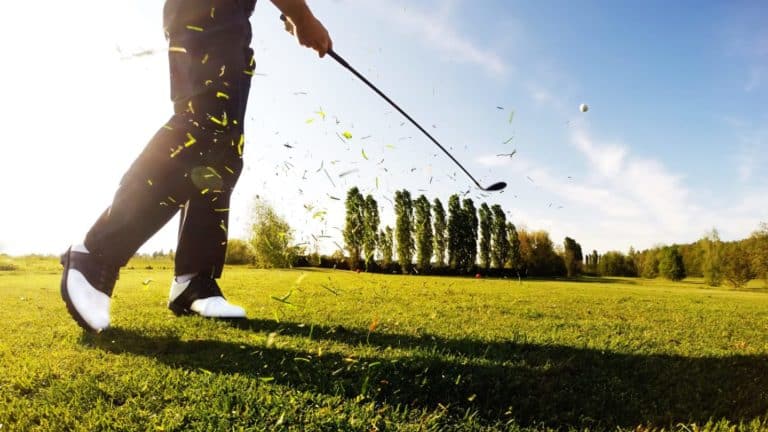
Preventing Golf Injuries
It’s time to dust the clubs off and get your golf game back into motion. But there’s nothing worse than starting the season off with an injury or nagging back pain.
We’ve found that golfers of all levels agree that it’s much easier to make a mechanically correct swing when their body is strong and flexible. Getting your body in shape for the season ahead involves three components:
- Maintaining and improving flexibility
- Improving golf-specific strength
- Improving postural balance and stability
Flexibility & Strengthening Exercises
Now is the time to begin a stretching and strengthening program for your neck, back, and extremities. Increasing joint flexibility can lengthen your swing and increase the clubhead speed, resulting in longer shots. We work with golfers throughout the season who complain of back pain, tendonitis, and other localized pain in the neck and elbow. We first assess their range of motion and then create a customized stretching program specifically for the areas bothering them.
We’ve listed the most common injuries as well as stretching tips to help prevent or reduce pain and injuries due to the repetitive nature of the golf swing paired with the high-velocity forces.
Medial Epicondylitis (golfer’s elbow)
Golfer’s elbow involves increased inflammation and pain on the inside of the elbow. Try extending and flexing the wrist and rotating your wrist clockwise and counter-clockwise to strengthen and stretch it.
Shoulder Tendonitis (rotator cuff tendonitis)
Shoulder tendonitis can be a chronic problem for people who have tightness or weak areas within their shoulders. Start with the cross-chest stretch by bringing your injured arm across your body, then place your other hand on your elbow and hold the stretch. You can also stand upright and clasp your hands behind your back. Keep your arms straight and slowly lift your hands upwards. Hold this stretch for 20 to 30 seconds, then repeat it 2 to 3 times.
Low Back Pain
Back pain is the most common issue that we treat when it comes to golfers because the golf swing combines unnatural spinal movements. The following stretch is excellent for increasing flexibility in the low back. Begin by lying on your left side, bending both knees 90 degrees, resting the right knee on top of the left. Extend both arms straight out from the shoulders, resting the left arm on the floor, right arm on top of the left. Slowly raise your right arm off your left, up and over your body until it is resting on the floor behind you, creating a twist in your upper body. Hold this position for 20-30 seconds, and repeat the exercise by lying on your right side.
Neck Pain
To achieve a good swing position, the ability to comfortably and fully tuck and rotate your chin is necessary. Limitations in flexibility and range of motion can cause neck pain, muscle strain, or nerve pinching. To help alleviate the stress on the neck, try gently rotating your neck from side to side and front to back twice per day for twenty seconds.
Keeping You in the Game
Being aware of your posture and physically preparing your body are key elements to achieving a pain-free golf game. We work with golfers, athletes, and people suffering from pain. Our goal is to get you back to feeling great and living a pain-free life! If you have questions concerning golf-related injuries or would like to request a complimentary screening with a licensed physical therapist, request an appointment online at the location nearest you.
The medical information contained herein is provided as an information resource only, and does not substitute professional medical advice or consultation with healthcare professionals. This information is not intended to be patient education, does not create any patient-provider relationship, and should not be used as a substitute for professional diagnosis, treatment or medical advice. Please consult with your healthcare provider before making any healthcare decisions or for guidance about a specific medical condition. If you think you have a medical emergency, call your doctor or 911 immediately. IvyRehab Network, Inc. disclaims any and all responsibility, and shall have no liability, for any damages, loss, injury or liability whatsoever suffered as a result of your reliance on the information contained herein.